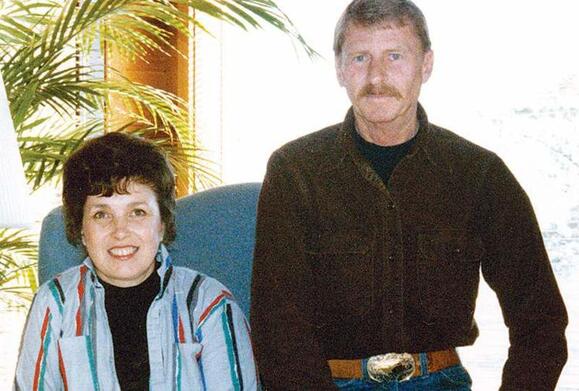|
Dave Houser is the son in law of Rod and Lois Houser, the couple gunned down by Randy Guzek. This is a travesty of justice. Essentially the elites of the Democratic Party (and some Republicans) know they don’t have the votes to overturn repeated votes for a limited death penalty. So the trick is to “limit” it, without full abolition, which would require voter approval.
The Court invoked the Oregon constitution, which although is identically worded to the federal constitution, allows the state Supreme Court to invoke “independent state grounds,” which is little different from southern states in the 1960s claiming “states’ rights” to try to evade federal civil rights laws. To respond to one anonymous troll on the KTVZ site, he cannot receive any other sentence than one that gives him immediate parole eligibility because that was the only alternative sentence in 1988.
People should write my successor, DA Ron Brown, and Governor Kate Brown to express their horror at the attempt by Jesse McAllister to get his sentence commuted. He murdered Brook Goza and Frank Nimitz on the Seaside beach in July 1997. He and co-defendant Brad Price fled to Mexico for a year. When McAllister was arraigned I was ready to seek the death penalty, but he offered to plead straight up to True Life, no possibility of parole.
Guest Column, Bend Bulletin
August 30, 2021 Race has played a role in Oregon politics and the law in Deschutes County, and not just a century ago. In what is deemed by some to be a great “reckoning,” many Americans are examining their histories with race. I grew up in Oregon. If it weren’t for my parents’ involvement in the early civil rights and anti-Vietnam War movements, I might never have met a Black person until I was older, like many Oregonians. One of my first cases as the No. 2 lawyer in the Deschutes County District Attorney’s Office (when I served in that job from 1990-94) was the murder of Lynn Oliverio, a Bend woman who worked downtown and whose only mistake was using the rail line as a shortcut to work. On Nov. 9, 1989, Robert Fort robbed, raped and murdered her, and then fled by hopping on a train. Good police work tracked down a piece of jewelry he had stolen and hocked. He was caught in the Midwest and brought back to Bend for trial. The case was horrific. The victim was blameless, and Fort ’s crime was particularly cruel and vicious. The crime and his previous record clearly made Fort a good candidate for the death penalty, which Oregon had reinstated just five years earlier. My boss, then -DA Mike Dugan, made clear the decision was mine. I had bitterly opposed the death penalty while growing up but had gradually changed my mind as I worked as a prosecutor. I decided to offer Fort a deal — a life sentence — which he accepted. I made the offer in no small part because Fort was a Black man, and at the time Deschutes County had the smallest percentage of Black residents of any of the midsized or larger counties in Oregon. Without question his jury would have been all white. In all the subsequent trials I led in Deschutes County, I found the jurors to be intelligent, thoughtful and more diverse than I expected — and certainly more diverse than I expected at this first murder trial there. But as the person with the power to decide whether the gate to the death penalty should be unlocked for Fort, I had misgivings. I had read about racist juries in the South acquitting sheriffs of murdering civil rights workers and similar horrors. Given the power of the state, I decided to err on the side of caution. No part of America is free of racism, but Oregon was not founded, as some claim, as some sort of “white paradise.” Until 1987 the state motto was “The Union,” fighting words in 1859 when Oregon was admitted and just before the Confederacy declared war on the United States. The Oregon territorial governor, Joseph Lane, was a southerner and a die-hard racist. But more Oregonians of the era were Northerners who detested slavery. If a slave owner brought a slave into Oregon, that slave was then free, years before the 13th Amendment. When that amendment was debated, immortalized in the 2012 movie “Lincoln,” Congress was deeply divided. Yet the Democratic Senator from Oregon, James Nesmith, who represented a party that defended slavery, cast his vote to free the slaves, one of only two Democrats in the U.S. Senate to do so. You want and need a district attorney who reflects the values of the community but ultimately is loyal to the law, not to the crowd or the moment. Over the next year Deschutes County voters will have the chance to put the DA’s office back on the right track, from which it strayed about 6 years ago. History surrounds us. It is the preface, and sometimes an explanation about where we are as a people and a nation. But it shouldn’t be a yoke that can be weaponized to stifle debate. We would do well to heed Lincoln’s admonition in his first inaugural to “heed the better angels of our nature.” read the column on the Bulletin's website.
“It would be absolutely chaotic! We’d be talking about thousands, maybe tens of thousands of convictions being reversed,” described retired Clatsop County DA Joshua Marquis.
Marquis told KOIN 6 News that beyond tying up the courts, granting retroactivity would result in more hung juries, force victims to relive trauma, and make it increasingly difficult for prosecutors to convict in cases of sexual assault. “I’ve been trying these cases for nearly 40 years and there’s a great deal of skepticism still when women, and girls, and children come forward,” Marquis pointed out. “And almost every verdict I’ve obtained has been 11-1 or 10-2 for guilty.” Under the new unanimity law, those votes would not be enough to garner a conviction. “On the service it sounds very simple, -‘now we’re just like the rest of the country, justice has been done so let’s just go back and redo all those cases’ – but that won’t be what happens!” explained Marquis. ::::::::::::::::::::::::::::::::::: Jury still out on split-jury cases as hundreds seek new trial from KOIN 6 News by: Joelle Jones Posted: Jul 23, 2021 / 06:00 PM PDT / Updated: Jul 23, 2021 / 10:42 PM PDT PORTLAND, Ore. (KOIN) — Trial by error … or an error in our trial system? Oregon’s controversial history involving non-unanimous jury decisions continues to be a topic of debate as lawmakers grapple with whether to give hundreds of Oregonians convicted of crimes new trials. The debate comes after the Supreme Court ruled non-unanimous jury convictions to be unconstitutional under Ramos v. Louisiana in 2020, forcing Oregon — the last state to allow divided jury decisions — to update its laws. However, the decision did not apply retroactively, meaning hundreds of cases with split-jury convictions prior to the Ramos ruling (many of them with defendants still behind bars ) would not be granted relief. With the fate of those cases back in the hands of the state, the jury is still out on how to address them. KOIN 6 News spoke with one of the hundreds of Oregonians fighting for second chance in their case, including Terrence Hayes. In 2004, Terrence Hayes was convicted and sentenced to serve 13 years in prison on a 10-2 vote. “Ten out of twelve are good numbers that don’t historically work out for minorities,” explained Hayes. “So, you’re talking about sitting in jail for 13 years knowing you didn’t technically get a fair trial.” “Guilty beyond a reasonable doubt! That’s how our justice system is supposed to work,” Hayes said. “How can you say there wasn’t any doubt in my case when two jurors didn’t even think I was guilty?” US Supreme Court to hear case with Oregon implications Following the Supreme Court’s Ramos ruling, in spring of 2021 the Oregon legislature wrote non-unanimous juries out of state law in Senate Bill 139A. The legislation, which currently awaits the governor’s signature did not address retroactivity. Now, some lawmakers argue simply aligning our laws does not go far enough. While discussing SB 193A on the House floor, Representative Janelle Bynum stated, “This section doesn’t really do anything unless we address the 300 or 400 or so Oregonians who have been convicted under non-unanimous juries and are awaiting a second opportunity to discuss their case.” Aliza Kaplan, professor at Lewis and Clark Law School and Director of their Criminal Justice Reform Clinic cites the racist history surrounding Oregon’s law as just one of many reasons to consider retroactivity. “The law was based in xenophobia and anti-Semitism but primarily played out over the last 90 years against mostly Black people,” Kaplan explained. “When you know a law is on the books that was based in discrimination and has played out in a discriminatory way of almost 90 years… and then it was found unconstitutional – I just think it’s really important that we go back and fix those mistakes.” Non-unanimous juries gets SCOTUS hearing, Oregon watches Approximately 420 cases actively in direct appeals at the time of the Ramos ruling were vacated and granted a second chance in their trials. Kaplan went on to highlight the primary difference between those cases the ones like Haye’s which have received no relief is simply timing. “It’s this crazy thing in the law that says ‘Oh we don’t really care that you were convicted under an unconstitutional law, or that it’s totally racist. It doesn’t matter ‘cause the timing wasn’t right,’” exclaimed Kaplan. “And it just feels –and is– so unjust and unfair. All folks want is a second chance, a redo.” Hayes told KOIN 6 News that the controversy and contradictions surrounding Oregon’s non-unanimous jury law should challenge Oregonians to ask the question: “Why, if we’ve recognized this as racist, aren’t our leaders immediately smacking it in the mouth and dealing with it?” At the time of Hayes’ conviction, Oregon’s Attorney General Ellen Rosenblum was the presiding judge. Ironically, she now has the opportunity to change Hayes’ life again for what he hopes may be the better. Supreme Court takes up non-unanimous juries “The attorney general has a choice,” said Kaplan. “Does her office fight retroactivity? Does she just let them go? Or even better, does she stipulate to retroactivity? … And in every single case that’s been filed, her office has fought the petitioner and said no retroactivity.” In addition to actively blocking retroactivity, Rosenblum filed a brief to the Supreme Court in 2019 asking them not to change the non-unanimous jury law despite publicly calling it “an embarrassment to our otherwise progressive state.” After their decision, Rosenblum filed a second brief in 2020 urging the courts not to make the decision retroactive, citing concerns that the courts would become ‘overwhelmed’ with appeals. And she’s not alone in her concerns. “It would be absolutely chaotic! We’d be talking about thousands, maybe tens of thousands of convictions being reversed.” described retired Clatsop County DA Joshua Marquis. Marquis told KOIN 6 News that beyond tying up the courts, granting retroactivity would result in more hung juries, force victims to relive trauma, and make it increasingly difficult for prosecutors to convict in cases of sexual assault. 16 non-unanimous verdicts returned to Oregon DAs “I’ve been trying these cases for nearly 40 years and there’s a great deal of skepticism still when women, and girls, and children come forward,” Marquis pointed out. “And almost every verdict I’ve obtained has been 11-1 or 10-2 for guilty.” Under the new unanimity law, those votes would not be enough to garner a conviction. “On the service it sounds very simple, -‘now we’re just like the rest of the country, justice has been done so let’s just go back and redo all those cases’ – but that won’t be what happens!” explained Marquis. And while retroactivity would undoubtedly be a logistical nightmare for the court system, Hayes argues lawmakers have a responsibility to rectify the situation for him and others like him who have been victimized by the now-unconstitutional law. “The courts is a thing. I am a human being, I’m a person!” cried Hayes. “My life matters! The time in my life matters -this moment of time that I have with my family and my friends matters and I don’t get that back! So when people sit there in their comfort zones letting that nonsense spew out of their mouths they are absolutely valuing a thing — a concept — over a human being that thing and concept was supposed to protect.” Advocates to keep fighting non-unanimous jury convictions For Hayes and others like him, retroactivity — if granted — would not be a ‘get out of jail free card.’ Defendants would have the burden to prove their case was the result of a non-unanimous jury decision in order to restart the trial process at the county level. A feat not so easily achieved, since most courts did not keep records on which verdicts were the result of non-unanimous jury verdicts. Currently, approximately 250 cases (not protected under Ramos) have filed appeals. And with the Oregon Attorney General and the legislature unable to pass a bill addressing retroactivity before the end of the session, Oregon’s law isn’t the only thing that appears to be non-unanimous. Guest column: No need to remove bar exam to ensure equality
Bend Bulletin Tuesday, July 13, 2021 What started as first a practical problem then turned into a moral panic for the Oregon State Bar, a quasi-private, quasi-governmental authority that regulates admission and regulation of lawyers, is now becoming a problem for the state and most importantly, their clients. The bar’s efforts were most recently documented in a July 7 editorial in The Bulletin and then a disapproving follow-up by a Rocky Goodell, a Bend lawyer licensed in Oregon and California. In full disclosure I have been practicing law for 40 years since being admitted in 1981. Working almost exclusively in criminal law, I was chief deputy district attorney in Bend in the ’90s, as well as similar jobs in other Oregon counties, before becoming the district attorney in Astoria for 25 years. Although I had been working in a DA’s office for 6 years before taking the bar exam, I narrowly flunked my first try, then learning the one question (out of two dozen) that caused me to fail was “criminal law.” I studied harder and passed the bar six months later, and even went on to be recruited to write and grade the criminal question about 15 years later. Over the years, between 55% and 75% of those taking the bar passed it. Some of Oregon’s most prominent politicians have repeatedly flunked the bar. It is not an intelligence test or even a test of legal acumen That is why — like medicine — we call it the “practice of law.” Last year the Oregon bar did something remarkably detrimental to both their clients and their members; in the face of COVID-19, they simply threw up their hands and decided anyone — anywhere in the U.S. — who graduated from a law school approved by the American Bar Association would be granted admission to the bar, no exam needed. These “2020 specials” will have several disadvantages; most states will not let them apply without what is called “multistate bar exam” passing grades. In the long term, the employability of many of these new lawyers is at risk. Since an average of about 40% of applicants flunk, in 2020 they are all “lawyers.” I’m sure there are at least 60% to 70% of those who will make adequate to great lawyers. But if I was still employing lawyers, I’d hesitate at the lack of the vetting of a 2020 graduate, and I suspect more clients may look for someone admitted in 2019 instead. But I’m no longer practicing more than part time, and mostly pro bono. To make things worse, The Bulletin approvingly tells us that the bar is experimenting with a new program as a permanent alternative to the dreaded bar exam; one would be a different class plan which proves skills in research, oral argument, and teamwork. The other would be an apprentice program requiring 1,000 to 1,500 hours of supervised internship. Both ideas have great merit, but in addition to, not in place of, a bar exam. The stated goal, is of course, to achieve greater “equity.” At what point do you hold all people with “doctor of jurisprudence” at the end of their title an equal need for competence? The Bulletin favored these proposals, saying they would mitigate a process that “can be unfair to some students who can’t devote the time to study for it full-time and creates racial disparities.” In what world would it be fair to say that because of their melanin levels, some lawyers don’t really have (or, more importantly, are presumed unable) to achieve as much, presumably creating a two-tier system for lawyers who are unconditionally qualified and those that are not. Under the existing system, the percentage of minority judges in Oregon far outstrips the percentage of minority lawyers in the state. Isn’t that what Dr. Martin Luther King Jr. always sought? A measure of the content of character, not the color of skin? Joshua Marquis was chief deputy district attorney in Bend from 1990-94 and appointed, then elected, as district attorney in Astoria from 1994 through 2018. |
JOSHUA MARQUIS on
criminal justice, animal welfare, and the nature of the relationship between popular culture and the law. Archives
March 2024
See the Archives page for an index of all posts, including those prior to January 2019.
Categories |




